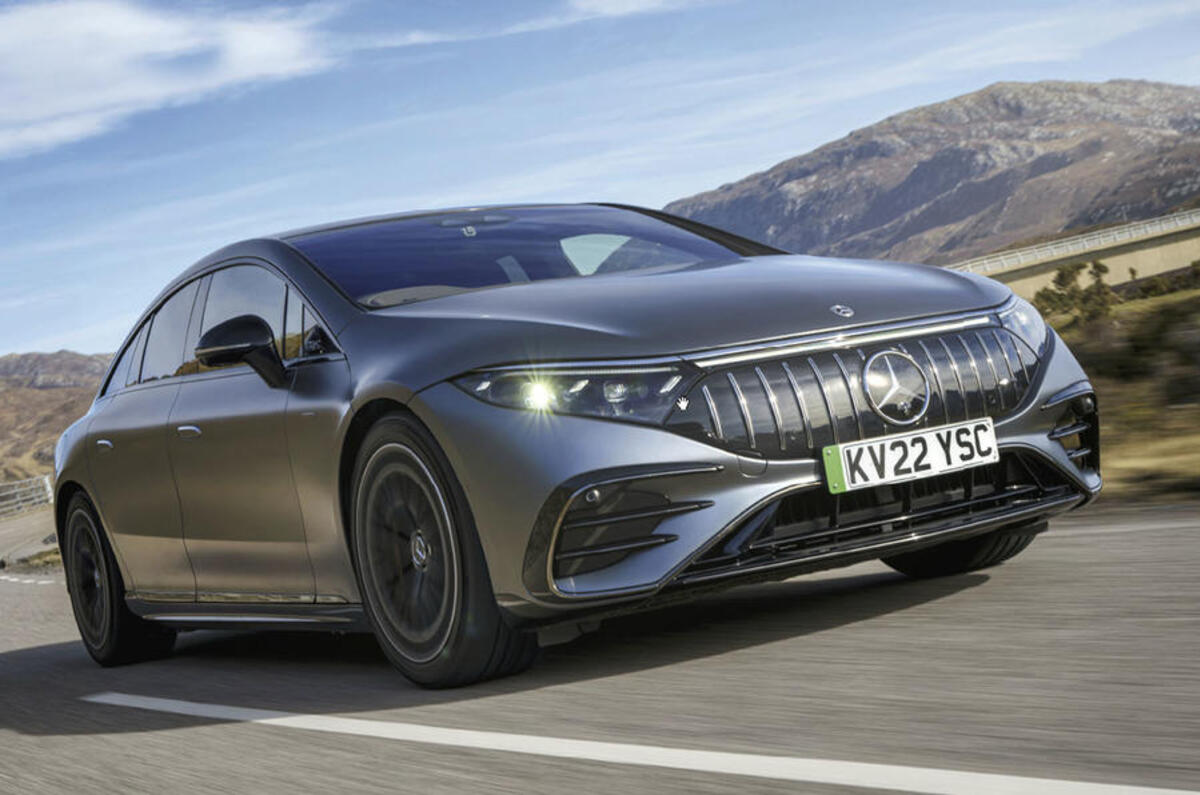Mercedes-Benz has pulled the plug on tests exploring range-extender drivetrains as a potential way to bolster the utility and appeal of its electric cars, Autocar understands.
The technology that had been trialled uses a specially adapted combustion engine as a generator to charge the battery when it runs low.
However, despite beginning an advanced engineering programme, the firm has decided to focus on simpler and more cost-effective battery-electric drivetrains, a source familiar with Mercedes’ car development activities confirmed.
“We have created [range-extender] prototypes based on existing models, both for packaging and road testing. In the end, though, we concluded that the range-extender drivetrain is a transitional technology with a relatively short-term benefit in terms of sales and comparatively high production costs,” said the high-level insider.
Among the range-extender Mercedes prototypes is an EQS-based mule. It is claimed to feature a front-mounted turbocharged 1.0-litre two-cylinder engine – essentially half of the turbocharged ‘M254’ 2.0-litre four-cylinder engine used through its line-up – to act purely as a generator without direct drive to the wheels.
The compact petrol engine is modified with Miller-cycle thermodynamic prototypes aimed at improving constant-rev efficiency. It also features a front-mounted exhaust system, waiving the requirement for lengthy pipework through to the rear.
Power for the prototype is delivered by a rear-mounted electric motor developing 268bhp and operating in combination with a floor-mounted lithium ion battery.
Electric energy for the battery, described as having a capacity roughly half of that used by the production EQS, is provided by traditional AC and DC plug-in charging. The two-cylinder engine is used to create back-up electricity in situations where plug-in charging is not available or possible.
In the Mercedes prototype, the petrol engine is combined with a fuel tank of unspecified capacity, giving it a theoretical range, Autocar has been told, beyond the 487 miles of the rear-driven EQS 450+.
Attention has turned to range-extender electric vehicles following their increasing popularity in China. Aware of the lack of EV charging infrastructure in second- and third-tier cities, many car makers there have begun to offer range-extender options alongside pure-electric drivetrains in selected models.
Among those offering range-extender models in the world’s largest EV market is Li Auto. Founded in 2015, the Beijing-based company sold 376,030 vehicles in 2023 – all featuring a range-extender drivetrain to alleviate range anxiety and provide an alternative to plug-in charging in regions where a suitable charging infrastructure does not yet exist.






Join the debate
Add your comment
All this range nonsense. Just fix the charging infrastructure! It's the petrol equivalent of fitting massive fuel tanks because you can't guarantee the pertol pump will work, have fuel, be available etc. That's not how petrol cars became ubiquitous. Petrol cars became popular because petrol companies invested in infrastucture. The same needs to happen for electric but unfortuntely the oil companies aren't interested, governments globally are incompetent and the small companies that try to do charging stations are useless at capacity planning and reliabilty!
Dumb idea having 2 engines, fuel sources or whatever no matter what the configuration. BMW and others have already failed so lets give it miss especially with the rate of battery improvement and charging.
This is a disappointing development. I know that range extenders are a transitional technology, but in the short to medium term (where we have poor charging infrastructure) it would avoid many people having to own a second car for occasional long distance trips. Plus, given restricted battery production it would enable more EVs to be sold to the benefit of the environment.
Maybe car manufacturers have been put off by the relative lack of success of BMW's i3 REX model?